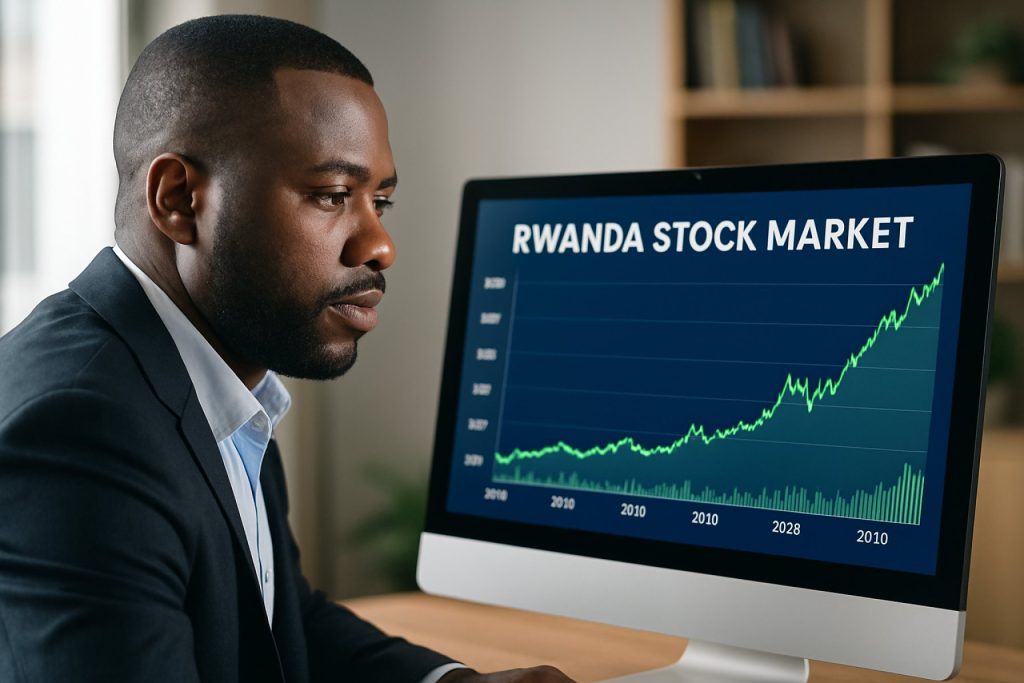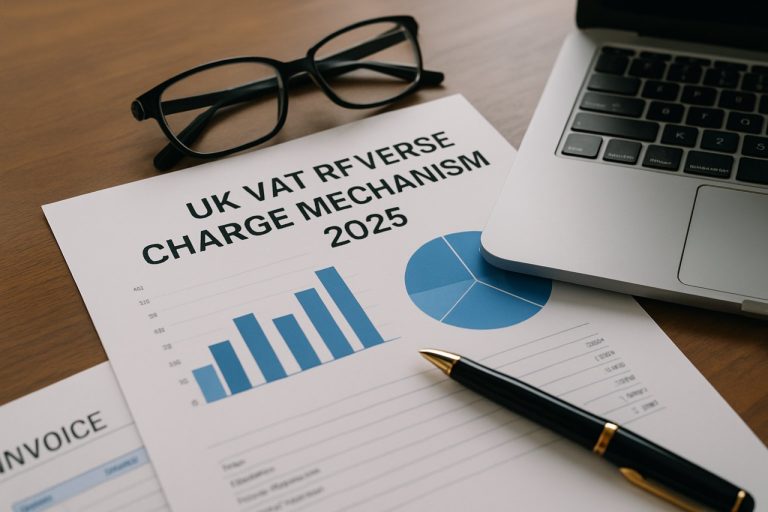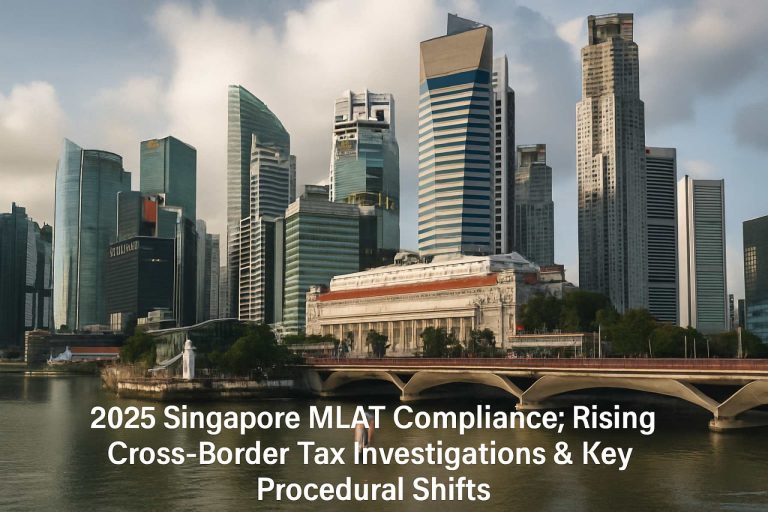
Table of Contents
- Executive Summary: Key Highlights & Takeaways
- Overview of Rwanda’s Stock Market Structure
- 2025 Market Performance: Key Indices & Statistics
- Legal & Tax Framework: Compliance and Regulatory Updates (Source: cmarwanda.org, rra.gov.rw)
- Recent IPOs and Notable Listings (Source: cmarwanda.org)
- Sector Analysis: Banking, Telecom, and New Entrants
- Foreign Investment Trends & Policy Shifts (Source: rdb.rw)
- Innovative Technologies and Digital Trading Platforms
- Risks, Challenges, and Market Resilience Factors
- 2025–2030 Outlook: Forecasts, Opportunities, and Strategic Insights
- Sources & References
Executive Summary: Key Highlights & Takeaways
The Rwandan stock market, primarily driven by the Rwanda Stock Exchange (RSE), has exhibited steady progress in 2025, marked by increased participation, regulatory enhancements, and a growing pipeline of listings. The RSE continues to serve as a pivotal platform for capital raising and investment, reflecting the government’s commitment to deepening the country’s capital markets and supporting economic development.
- Market Performance: In 2025, the RSE All Share Index demonstrated moderate growth, buoyed by robust performance in banking and cross-listed regional equities. Market capitalization hovered around RWF 4 trillion, with average daily turnover reaching RWF 60 million, underscoring rising investor confidence and liquidity. These trends align with Rwanda’s broader financial sector goals to increase domestic savings and diversify investment instruments (Rwanda Stock Exchange).
- Regulatory Developments: The Capital Market Authority (CMA) has implemented updated compliance frameworks in 2025, including enhanced disclosure requirements and anti-money laundering (AML) protocols. The introduction of the Securities Central Depository (SCD) upgrade has improved settlement efficiency and investor protection, aligning local practices with regional and international standards.
- Key Events: The government’s successful privatization of stakes in several state-owned enterprises via the RSE has attracted a broader investor base, including institutional and foreign participants. The launch of Rwanda’s first green bond on the exchange in late 2024 and continued trading in 2025 signals a growing appetite for sustainable finance instruments (Ministry of Finance and Economic Planning).
- Legal and Compliance Environment: The 2022 Capital Market Law remains the backbone of market regulation, with continuous updates to subsidiary legislation in 2025 to address emerging market risks and promote transparency. The CMA has intensified market surveillance and compliance inspections, leading to improved governance among listed companies.
- Outlook: Looking ahead, the Rwandan stock market is expected to benefit from ongoing digitalization, regional integration efforts through the East African Community (EAC), and further listings, particularly from the financial, infrastructure, and agribusiness sectors. Authorities anticipate increased cross-border activity and innovative products, shaping Rwanda into a more dynamic regional capital markets hub (Capital Market Authority).
In summary, 2025 is a pivotal year for Rwanda’s stock market, characterized by regulatory advances, strategic listings, and rising investor participation, setting a foundation for sustained growth and financial sector resilience.
Overview of Rwanda’s Stock Market Structure
Rwanda’s stock market, primarily structured around the Rwanda Stock Exchange (RSE), has experienced steady development since its inception in 2011. The RSE is regulated by the Capital Market Authority of Rwanda, which oversees compliance, market integrity, and investor protection. The exchange lists both equities and bonds, with major domestic companies such as Bank of Kigali, Bralirwa, and Crystal Telecom featuring among the listed equities. Cross-listed regional companies, particularly from Kenya, like Equity Group Holdings and Kenya Commercial Bank, also play a significant role in overall market capitalization.
In 2024 and into 2025, market data indicates a modest uptick in trading volumes and market participation, spurred by increased investor confidence and ongoing government initiatives to deepen capital markets. The total market capitalization of the RSE was reported at approximately RWF 5 trillion in late 2024, with government bonds comprising the majority share, reflecting the strong appetite for fixed-income securities among institutional investors (Rwanda Stock Exchange). Equities trading, while growing, remains relatively shallow, with daily turnover ranging between RWF 20 million and RWF 60 million.
Key statutory frameworks guiding the market include the Capital Market Act and various regulations issued by the Capital Market Authority of Rwanda. These address disclosure requirements, insider trading, market abuse, and listing obligations. Recent regulatory updates have focused on enhancing anti-money laundering (AML) and counter-terrorist financing (CTF) measures in line with international standards, and on fostering the development of collective investment schemes (Capital Market Authority of Rwanda).
Looking ahead to 2025 and beyond, several trends are expected to shape Rwanda’s stock market landscape:
- Continued government bond issuances to fund infrastructure and social programs, supporting liquidity and broadening the investor base.
- Gradual growth in equity listings as state-owned enterprises and emerging private sector companies consider public offerings, encouraged by government privatization and SME access programs.
- Adoption of digital trading technologies and central securities depository upgrades to improve efficiency and transparency (Central Securities Depository of Rwanda).
- Regional integration efforts within the East African Community, facilitating cross-listings and harmonization of trading standards.
While Rwanda’s stock market remains relatively small in an African context, ongoing legal reforms, compliance enhancements, and state-backed market development initiatives position the RSE for gradual but resilient growth through 2025 and the subsequent years.
2025 Market Performance: Key Indices & Statistics
The Rwandan stock market has experienced steady development in recent years, driven by ongoing regulatory improvements, increased investor confidence, and strategic initiatives aimed at deepening capital markets. As of 2025, the Rwanda Stock Exchange (RSE) continues to serve as the country’s principal platform for equity and debt securities trading, under the oversight of the Capital Market Authority of Rwanda (CMA).
Key indices on the RSE, notably the Rwanda Share Index (RSI) and the All Share Index (ALSI), reflect the performance of listed equities, including prominent domestic financial institutions and cross-listed regional entities. By mid-2025, the RSI showed resilience, maintaining positive momentum with a year-to-date appreciation of approximately 7%, while the ALSI registered modest gains amid moderate trading volumes. The market capitalization surpassed RWF 4 trillion, correlating with gradual increases in both domestic and foreign investor participation. This growth has been supported by the listing of new securities, particularly in the banking and insurance sectors, as well as periodic government bond issuances.
Regulatory compliance has remained a focal point in 2025, with the Capital Market Authority of Rwanda enforcing enhanced disclosure requirements and corporate governance standards for listed companies. The CMR Law No. 11/2011 and subsequent amendments continue to underpin market operations, ensuring investor protection and market integrity. The RSE has also advanced its digitalization agenda, introducing electronic trading and settlement systems to bolster efficiency, transparency, and accessibility for retail investors.
Statistically, trading volumes have remained concentrated among a handful of blue-chip companies, with banks such as BK Group Plc and cross-listed firms like Nation Media Group continuing to dominate turnover. Government securities, particularly Treasury bonds, have attracted robust demand, with oversubscription rates often exceeding 150%. The RSE’s secondary bond market has also recorded gradual increases in liquidity, reflecting broader efforts to diversify market instruments and investor profiles.
Looking ahead to the remainder of 2025 and into the following years, the outlook is cautiously optimistic. The government’s commitment to capital market development—articulated in national strategy documents and reinforced by ongoing regulatory reforms—is expected to further stimulate listings and attract institutional investors. Key risks include regional economic volatility and global interest rate trends, though Rwanda’s prudent macroeconomic policies and stable regulatory environment are likely to support continued, albeit gradual, market expansion. The RSE’s progress is emblematic of Rwanda’s broader ambition to position itself as a regional financial hub in East Africa.
Legal & Tax Framework: Compliance and Regulatory Updates (Source: cmarwanda.org, rra.gov.rw)
Rwanda’s stock market operates within a robust legal and tax framework, shaped by ongoing reforms and regulatory oversight to ensure transparency, investor protection, and market integrity. The primary regulator, the Capital Market Authority (CMA Rwanda), continually updates compliance requirements and market rules to adapt to both local and international best practices. The Rwanda Stock Exchange (RSE) is governed by the Capital Market Act, which sets the legal foundation for public offerings, disclosures, and market conduct.
Recent years have seen significant developments. In late 2023 and into 2024, CMA Rwanda issued revised guidelines on market conduct, focusing on enhancing disclosure obligations for listed companies and tightening insider trading rules. These updates align with Rwanda’s broader ambitions for regional integration and attracting foreign investment. The capital market’s regulatory framework is also being harmonized with the East African Community (EAC) capital market protocols, supporting cross-border listings and investment flows.
Taxation of capital market activities in Rwanda is administered by the Rwanda Revenue Authority (RRA). Gains from the sale of shares on the RSE are generally subject to capital gains tax, but there are exemptions aimed at stimulating market activity. For example, as of 2024, exemptions on capital gains tax may apply to investors who hold shares for at least three years or participate in priority sectors, according to recent RRA guidelines. Dividend income is subject to withholding tax, though reduced rates are available under certain double taxation agreements. The RRA’s digital tax administration systems, enhanced in recent years, have improved compliance monitoring and reduced reporting burdens for both issuers and investors.
Key statistics from the CMA Rwanda indicate that by early 2025, the number of listed companies has grown modestly, while bond issuances—especially green and infrastructure bonds—are gaining traction. Market capitalization reached approximately RWF 5 trillion, reflecting cautious optimism among investors. The introduction of online trading platforms and enhanced regulatory technology (RegTech) tools by the CMA is expected to further boost market participation and transparency into 2025 and beyond.
Looking ahead, Rwanda’s capital market is poised for gradual expansion, underpinned by continued regulatory modernization and tax incentives. Policy direction suggests increased support for SME listings, further harmonization with regional standards, and enhanced compliance enforcement. These factors are likely to sustain investor confidence and foster deeper capital market development in the next several years.
Recent IPOs and Notable Listings (Source: cmarwanda.org)
Rwanda’s stock market has continued to evolve steadily, with recent initial public offerings (IPOs) and notable listings reflecting both domestic economic expansion and growing investor confidence. The Rwanda Stock Exchange (RSE), regulated by the Capital Market Authority of Rwanda, has seen increased activity in the past few years, particularly as government reforms and privatization initiatives encourage more companies to list.
In 2023, the listing of MTN Rwandacell Plc remained a milestone as the first telecom company to go public in Rwanda, opening up the market to a broader investor base and setting precedents for subsequent IPOs. Following this, 2024 brought heightened anticipation for new listings, with several state-owned enterprises and financial institutions preparing for privatization and public share offerings—a process aligned with Rwanda’s Vision 2050 to deepen financial markets and foster inclusive growth. The government has also signaled further divestiture of its holdings in strategic sectors, which may result in new IPOs in 2025 and beyond.
Law and compliance frameworks for public offerings are governed by the Capital Market Act and ensuing regulations issued by the Capital Market Authority of Rwanda. These ensure rigorous disclosure, transparency, and governance standards. The legal requirements for IPOs include submission of a prospectus, adherence to corporate governance codes, and ongoing reporting obligations—fostering investor protection and market integrity.
According to the Capital Market Authority of Rwanda, the RSE’s market capitalization surpassed RWF 4 trillion in 2024, a significant increase from previous years. Trading volumes have also risen, partly driven by increased participation from both domestic and regional investors. Notably, cross-listings from companies on the Nairobi Securities Exchange and the Uganda Securities Exchange have contributed to market depth, while homegrown enterprises in banking, insurance, and manufacturing are actively considering listings.
Looking forward, 2025 is expected to see continued momentum in IPO activity, particularly as Rwanda’s government advances its privatization agenda and as regulatory reforms streamline listing procedures. The expansion of the Central Securities Depository and adoption of electronic trading systems are likely to further enhance market efficiency and accessibility. The positive trajectory in listings and compliance fosters optimism for sustained growth, deeper capital market development, and increased investor participation in the coming years.
Sector Analysis: Banking, Telecom, and New Entrants
The Rwandan stock market, anchored by the Rwanda Stock Exchange (RSE), has experienced measured growth in recent years, with key sectors such as banking and telecommunications driving activity. As of early 2025, the RSE lists primarily domestic banks, insurance firms, and a select group of cross-listed regional companies. The sectoral composition reflects Rwanda’s broader economic focus, with a heavy concentration of financial institutions and emerging interest in technology-driven businesses.
In the banking sector, listed entities such as Bank of Kigali and Equity Bank Rwanda remain the most actively traded, accounting for a significant portion of daily market turnover. Periodic rights issues and bond listings by these institutions have provided investors with diversified instruments, while regulatory oversight by the Rwanda Stock Exchange and the Capital Market Authority of Rwanda (CMA) ensures compliance with disclosure, listing, and prudential requirements. Notably, the recent push for increased capitalization and the adoption of International Financial Reporting Standards (IFRS) have heightened transparency and investor confidence.
Telecommunications, represented chiefly by MTN Rwanda since its 2021 IPO, continues to show robust trading volumes. MTN’s performance on the RSE has set a precedent for other non-financial corporates considering listing, reflecting both sectoral resilience and growing retail investor participation. The company’s compliance with continuous disclosure obligations and its engagement with the Rwanda Utilities Regulatory Authority (RURA) on sector-specific regulations have also contributed to market stability and credibility.
The RSE has actively encouraged new entrants, particularly from fintech, agribusiness, and small-to-medium enterprises. Efforts to streamline listing requirements—such as the creation of the Alternative Market Segment (AMS)—aim to lower entry barriers for high-growth potential companies. The CMA of Rwanda has further supported these initiatives through regulatory reforms and investor education programs, targeting a more inclusive capital market ecosystem.
Key statistics as of early 2025 indicate that the RSE’s total market capitalization stands at approximately RWF 4 trillion, with daily turnover averaging RWF 100 million during active trading sessions. The number of listed companies remains modest, but the pipeline for new listings is strengthening, driven by ongoing privatization and regional integration efforts under the East African Community (EAC) framework (East African Community).
Looking ahead, the outlook for Rwanda’s stock market remains optimistic. Regulatory modernization, increasing digitization, and prospective cross-border listings are expected to bolster market liquidity and sectoral diversity. The continued performance of the banking and telecom sectors, alongside a gradual influx of new entrants, is set to define the next phase of capital market development in Rwanda.
Foreign Investment Trends & Policy Shifts (Source: rdb.rw)
Rwanda’s stock market has experienced notable developments in recent years, with foreign investment trends and policy shifts shaping the trajectory for 2025 and beyond. The Rwanda Stock Exchange (RSE) continues to be the central platform for equities and bond trading, and its evolution reflects government efforts to attract international capital and foster a dynamic financial sector.
Foreign portfolio investment in the RSE has grown steadily, buoyed by reforms aimed at liberalizing capital markets and improving market infrastructure. The Rwanda Development Board (RDB) has actively promoted Rwanda as a regional financial hub, emphasizing macroeconomic stability, investor protection, and transparency. Policy shifts since 2022 included the streamlining of cross-border listing procedures and the reduction of bureaucratic hurdles for foreign investors, contributing to a more attractive environment for international capital flows.
A pivotal event was Rwanda’s adoption of the East African Community (EAC) Capital Markets Infrastructure (CMI) integration framework, enabling seamless trading of securities among partner states. This integration, supported by harmonized regulations and shared technology platforms, is expected to deepen liquidity and facilitate the entry of sophisticated foreign investors in 2025 and the following years. Compliance standards have also been enhanced, with the RSE and the Capital Market Authority of Rwanda (CMA) enforcing rigorous disclosure and anti-money laundering (AML) requirements in line with international best practices.
Key statistics illustrate the market’s momentum: as of early 2025, the RSE lists 10 equities and several government and corporate bonds, with a total market capitalization surpassing RWF 5 trillion (approximately USD 4.2 billion). Foreign investors account for over 30% of trading activity, a notable increase from 20% in 2021, according to data from the Rwanda Development Board.
Looking ahead, the outlook for Rwanda’s stock market is optimistic. Continued policy shifts—such as planned tax incentives for long-term foreign investors and the expected listing of additional state-owned enterprises—are projected to enhance depth and resilience. The government’s commitment to digitalization and regional market integration is likely to further boost foreign participation and overall market vibrancy through 2027. However, sustained compliance vigilance and alignment with international financial standards will remain crucial for attracting and retaining global investors.
Innovative Technologies and Digital Trading Platforms
Rwanda’s capital markets have made significant technological strides in recent years, reflecting a broader national push toward digital transformation. The Rwanda Stock Exchange (RSE), established in 2011, has implemented several innovations in trading infrastructure to enhance market efficiency, accessibility, and transparency. By 2025, these efforts are shaping both investor participation and regulatory oversight.
A pivotal development was the launch of the Automated Trading System (ATS), which replaced manual trading with an electronic platform. This upgrade, overseen by the Rwanda Stock Exchange, has reduced settlement times, minimized errors, and enabled real-time price discovery. The ATS also supports seamless integration with the Central Securities Depository (CSD), managed by the Central Securities Depository of Rwanda, ensuring secure and efficient custody and settlement of securities.
Digital trading platforms have democratized access to the stock market. Licensed brokers now offer online portals and mobile applications, expanding participation beyond Kigali to rural investors. The Capital Market Authority of Rwanda (CMA) has issued guidelines for digital onboarding and know-your-customer (KYC) compliance, allowing remote account opening and e-signatures while ensuring anti-money laundering (AML) standards are met. These regulatory frameworks are designed to foster innovation while mitigating risks associated with digital transactions.
Key statistics illustrate the impact of these technological advancements. As of late 2024, the number of investor accounts surpassed 130,000, with over 35% opened through digital channels according to the Capital Market Authority of Rwanda. Daily trading volumes have increased steadily, buoyed by the faster settlement cycles and broader access. Notably, the RSE All Share Index posted a compounded annual growth of 7% from 2021 to 2024, reflecting improved market confidence and liquidity.
Looking ahead to 2025 and beyond, the outlook for Rwanda’s stock market is closely linked to further digital innovation. The CMA is piloting regulatory sandboxes to test blockchain applications for clearing and settlement, and exploring the use of artificial intelligence in market surveillance. There are also ongoing discussions about cross-listing with regional exchanges via digital infrastructure, which could deepen liquidity and attract foreign investment. Continued enhancements in cybersecurity, investor education, and compliance will be critical as digital platforms become central to Rwanda’s capital market ecosystem.
Risks, Challenges, and Market Resilience Factors
The Rwandan stock market, anchored by the Rwanda Stock Exchange (RSE), has experienced steady growth since its inception, but it faces several risks and challenges that shape its outlook through 2025 and beyond. Key among these are liquidity constraints, limited market depth, regulatory compliance demands, and macroeconomic vulnerabilities. However, progressive reforms and robust oversight mechanisms contribute to the market’s resilience.
- Liquidity and Market Depth: The RSE remains relatively small, with a limited number of listed equities and bonds. As of early 2025, only about 11 companies are listed, and daily trading volumes remain modest. This restricts investor options and can lead to price volatility. The Rwanda Capital Market Authority (CMA) continues to encourage new listings and enhance secondary market activity to address these issues (Rwanda Capital Market Authority).
- Regulatory and Compliance Pressures: Rwanda’s capital markets operate under the Capital Market Act and are regulated by the CMA, which enforces strict disclosure and reporting standards to ensure market integrity. In 2023 and 2024, the CMA introduced enhanced anti-money laundering and investor protection rules, increasing compliance costs for issuers and intermediaries. These reforms, while necessary, create adjustment challenges, especially for smaller market participants (Rwanda Capital Market Authority).
- Macroeconomic and Regional Risks: The Rwandan stock market is exposed to domestic economic fluctuations, currency volatility, and external shocks—such as regional instability or global commodity price swings. The National Bank of Rwanda continues to monitor inflation and monetary policy closely, aiming to preserve market confidence (National Bank of Rwanda).
- Resilience Factors and Outlook: Despite these risks, the RSE benefits from forward-looking policy support. Initiatives to integrate with regional exchanges and the continued rollout of digital trading platforms are improving transparency and access. The government’s commitment to developing a deeper capital market is reflected in ongoing tax incentives and investor education campaigns. As a result, the outlook for 2025 and the coming years is cautiously optimistic, with steady growth in listings and market capitalization anticipated if reforms continue and macroeconomic stability is maintained (Rwanda Stock Exchange).
2025–2030 Outlook: Forecasts, Opportunities, and Strategic Insights
The Rwandan stock market, anchored by the Rwanda Stock Exchange (RSE), has exhibited steady development since its inception in 2011. As of 2025, the market comprises both equities and fixed income securities, with prominent listings including Bank of Kigali, Bralirwa, and cross-listed regional firms such as Equity Group Holdings and Nation Media Group. The RSE remains regulated by the Capital Market Authority of Rwanda (CMA), which continues to issue directives on market integrity, disclosure, and investor protection in line with the Capital Market Law.
Key statistics in 2024 show the RSE All Share Index recovering from pandemic-era stagnation, supported by increased trading volumes and new listings. The total market capitalization surpassed RWF 4 trillion, reflecting both organic growth and the impact of regional cross-listings (Capital Market Authority of Rwanda). The government has continued to issue Treasury bonds, which are regularly oversubscribed, indicating strong investor appetite and growing confidence in capital markets. The introduction of a new automated trading system has enhanced market efficiency and transparency.
In terms of compliance, the RSE and CMA have prioritized robust investor protection, anti-money laundering (AML) standards, and corporate governance. Ongoing initiatives to harmonize capital market regulations with the East African Community (EAC) framework further position Rwanda as a regional financial hub (Capital Market Authority of Rwanda). Recent amendments to listing and disclosure requirements are also intended to promote transparency and market discipline.
Looking ahead to 2025–2030, several opportunities and strategic considerations are emerging:
- Growth in the number and diversity of listings, particularly with ongoing government privatization efforts and potential initial public offerings (IPOs) in the financial and telecom sectors (Ministry of Finance and Economic Planning).
- Expansion of digital financial services and fintech integration, leveraging Rwanda’s advanced ICT infrastructure to attract younger and retail investors (Rwanda Utilities Regulatory Authority).
- Increasing regional integration, as cross-listings and harmonized trading platforms within the EAC are expected to boost liquidity and investor participation.
- Potential for green and social bonds, with the government signaling support for sustainable finance to address climate and social development goals (Rwanda Stock Exchange).
Risks to watch include global economic uncertainty, foreign exchange volatility, and the relatively low base of domestic retail investor participation. Nonetheless, with strong regulatory oversight and policy support, Rwanda’s stock market is forecast to deepen and broaden over the next five years, contributing to national goals for financial sector development and economic resilience.



